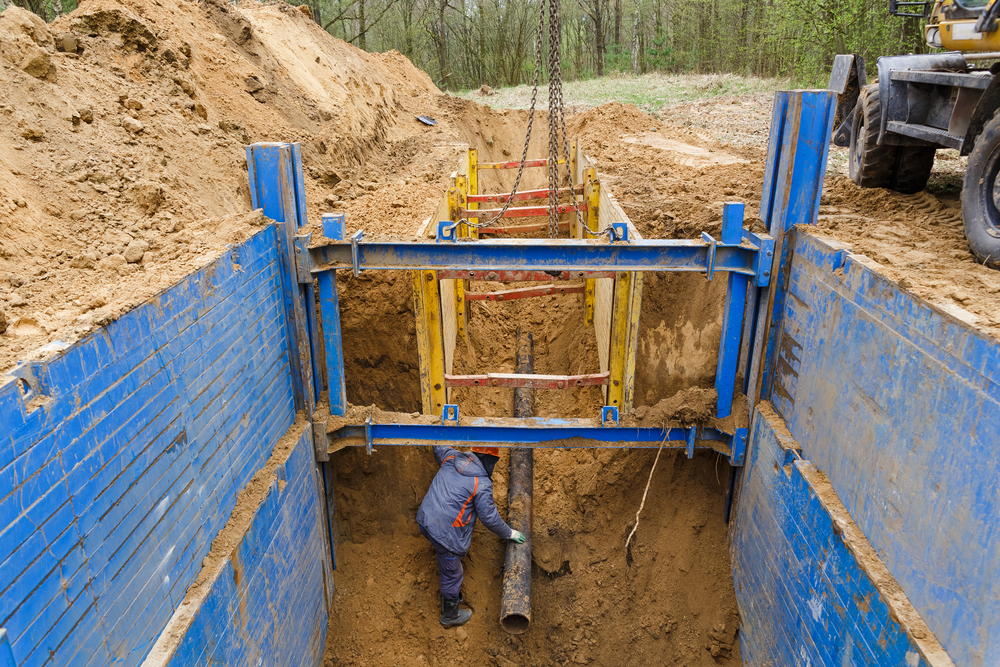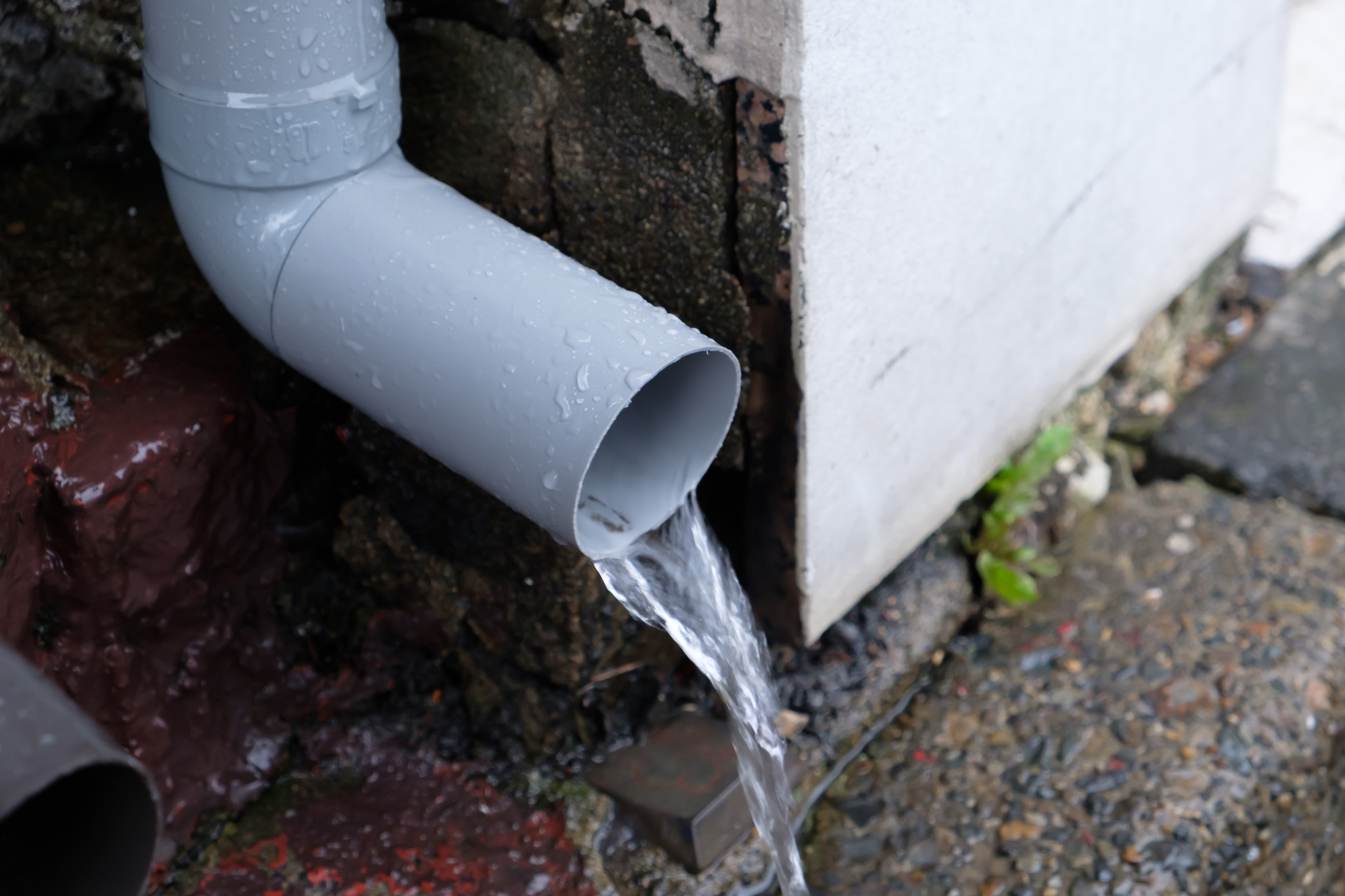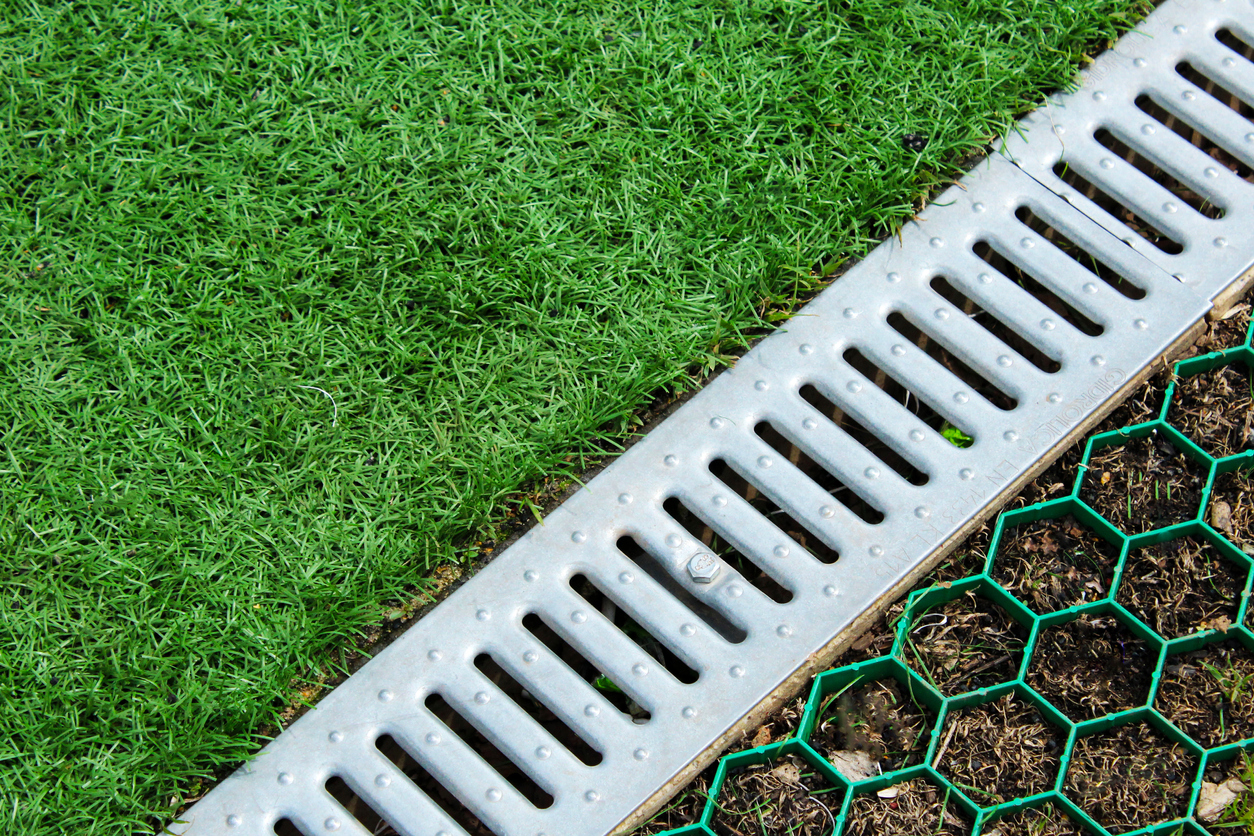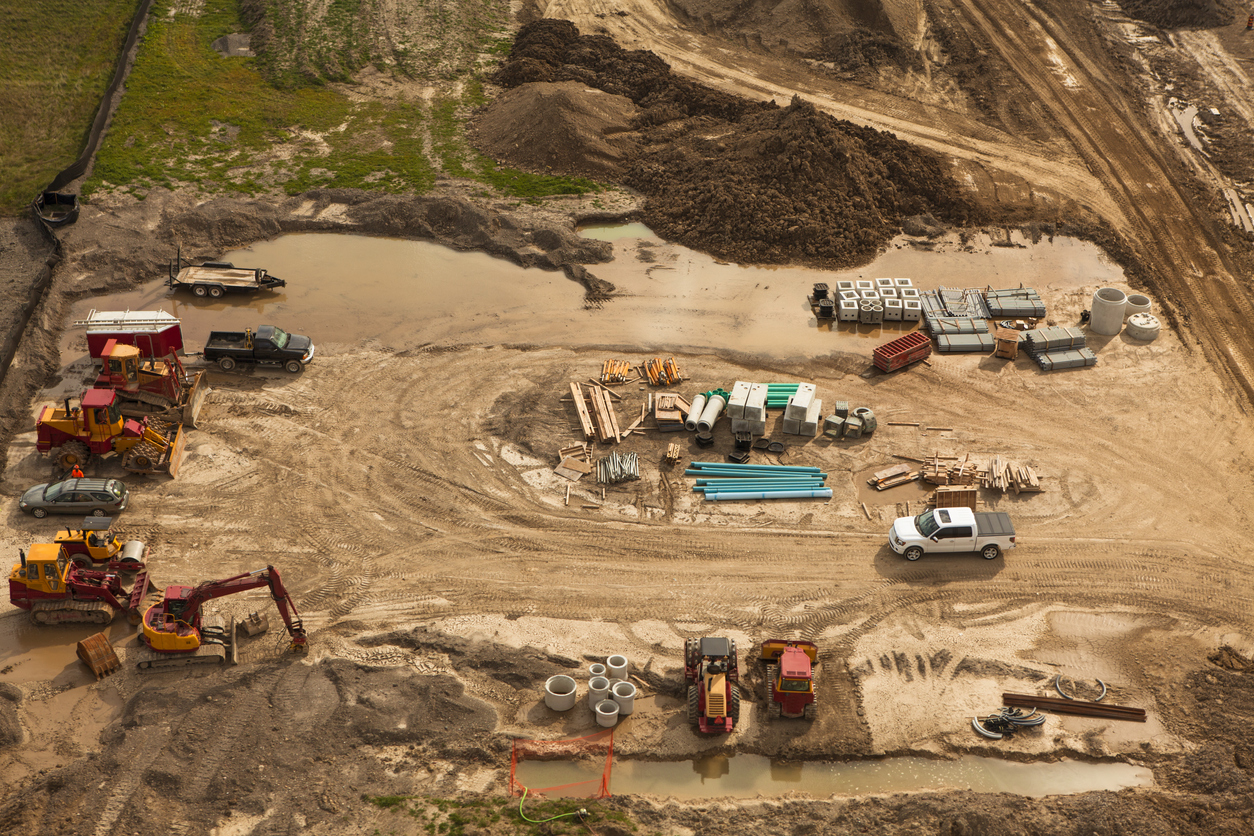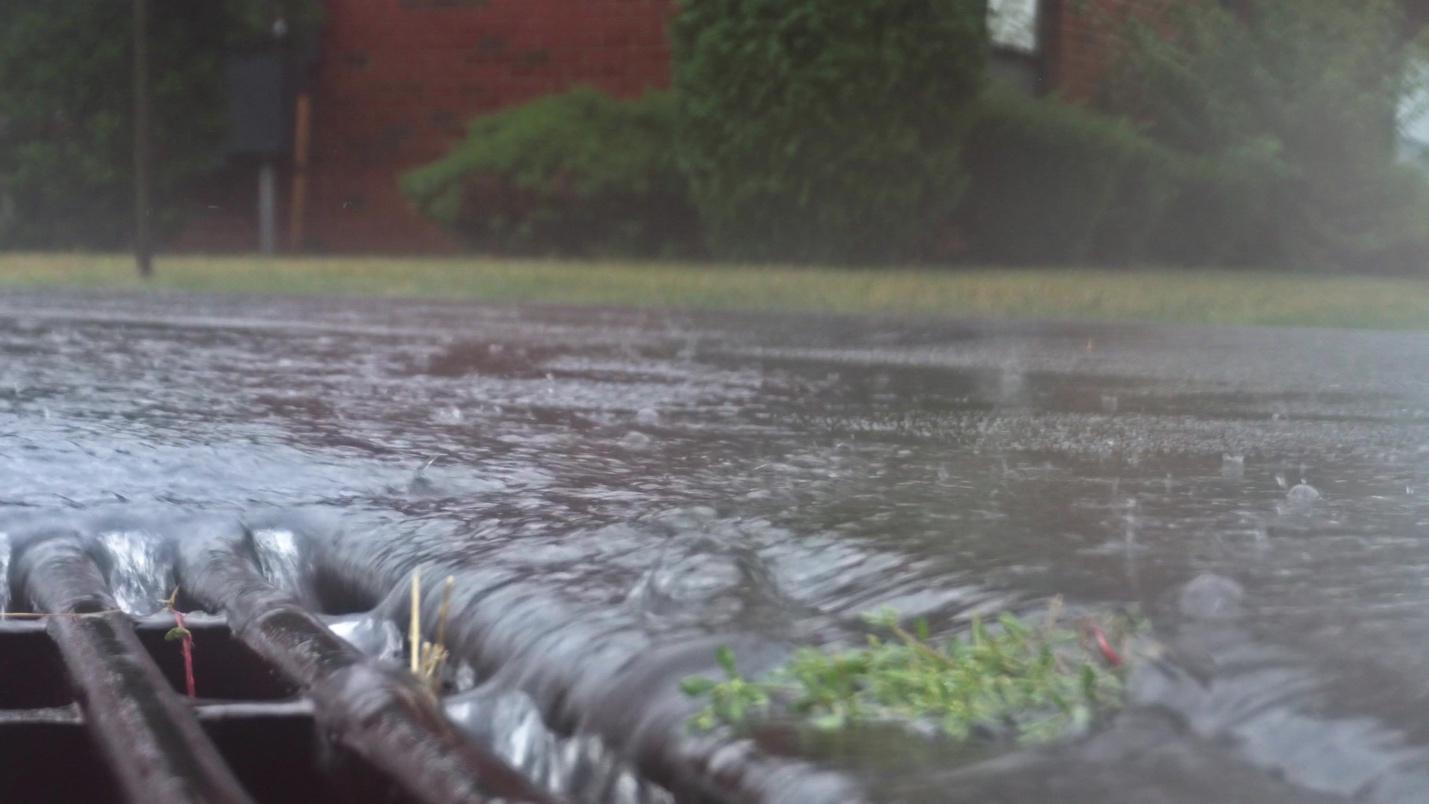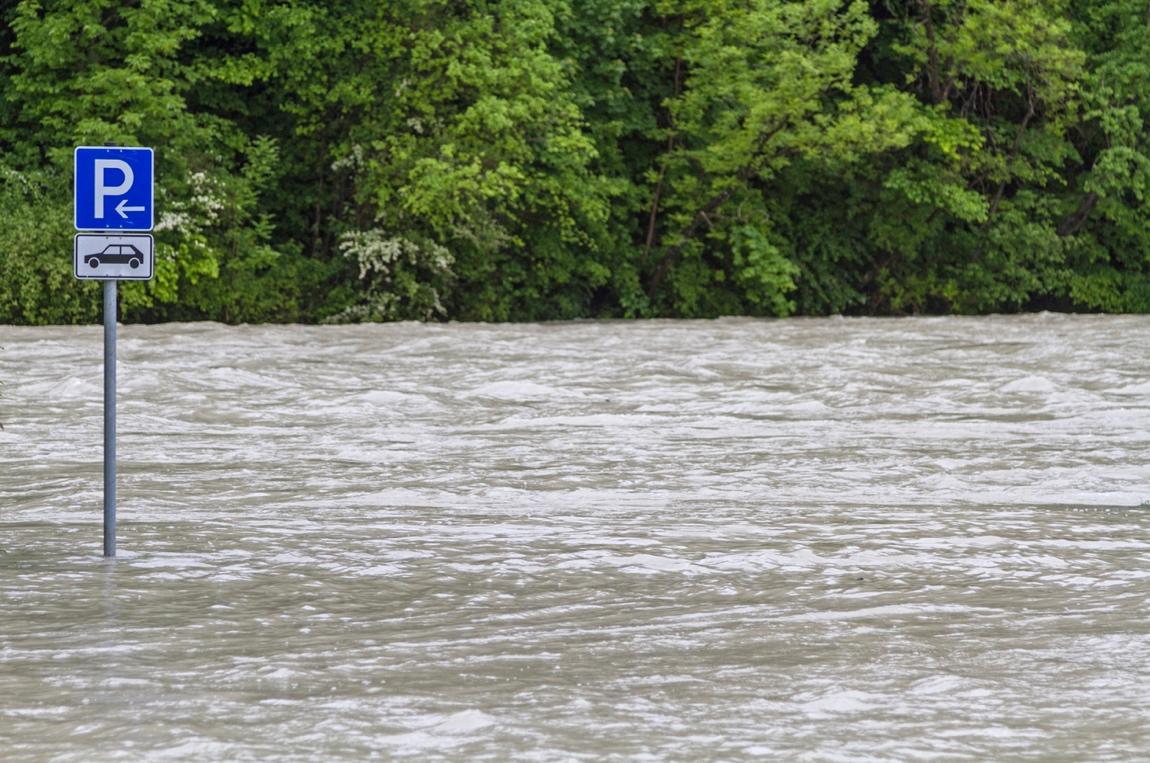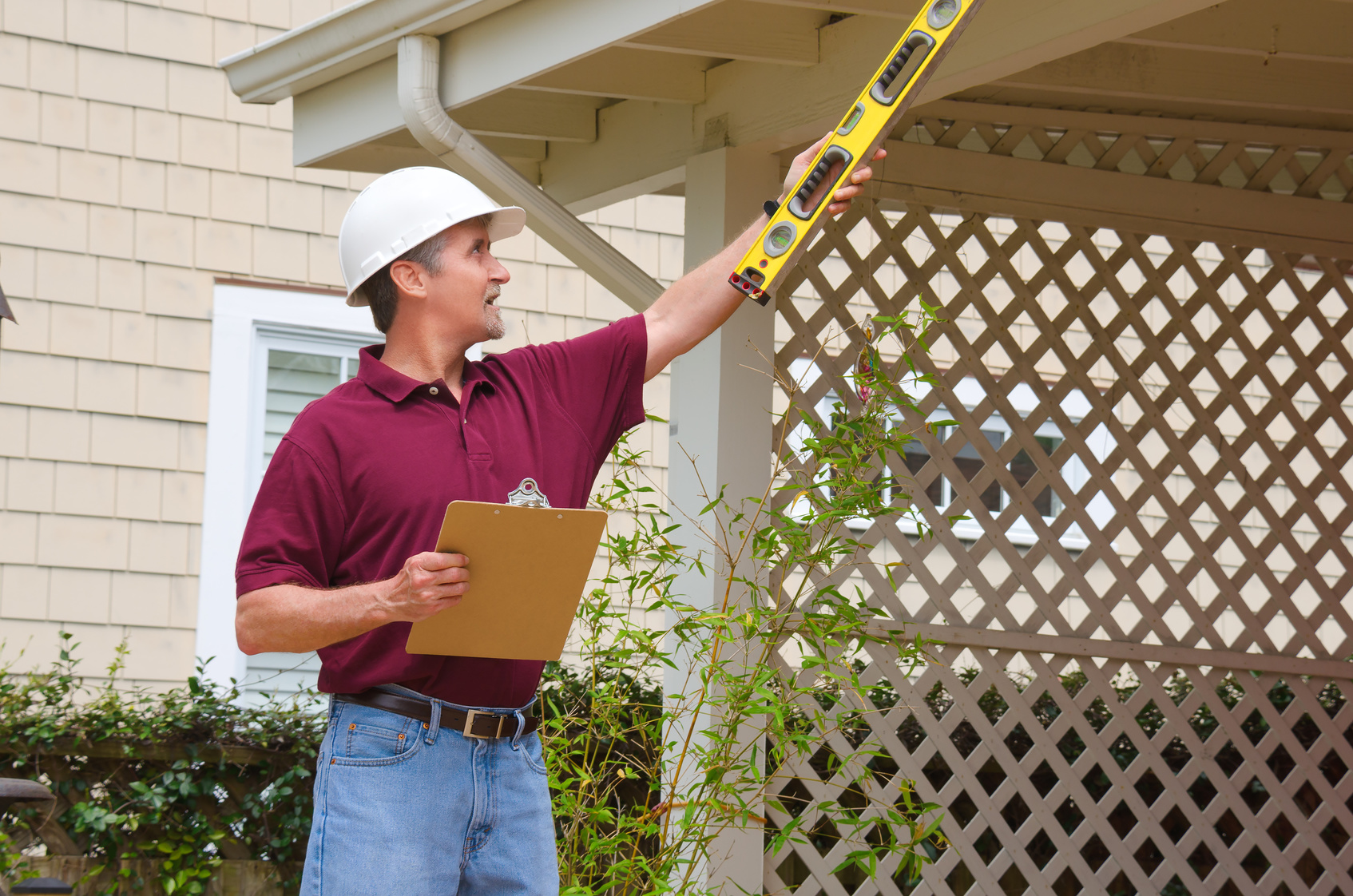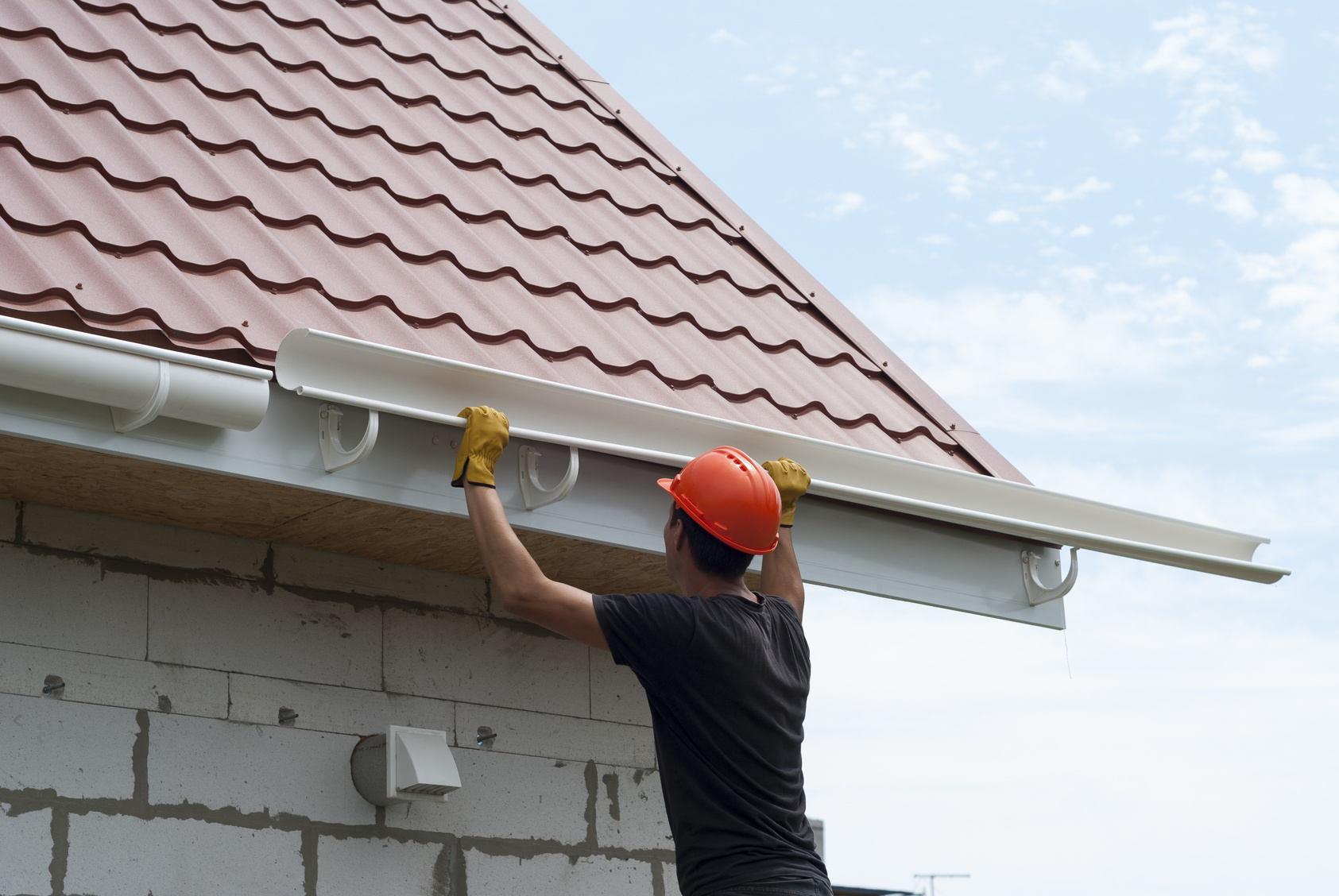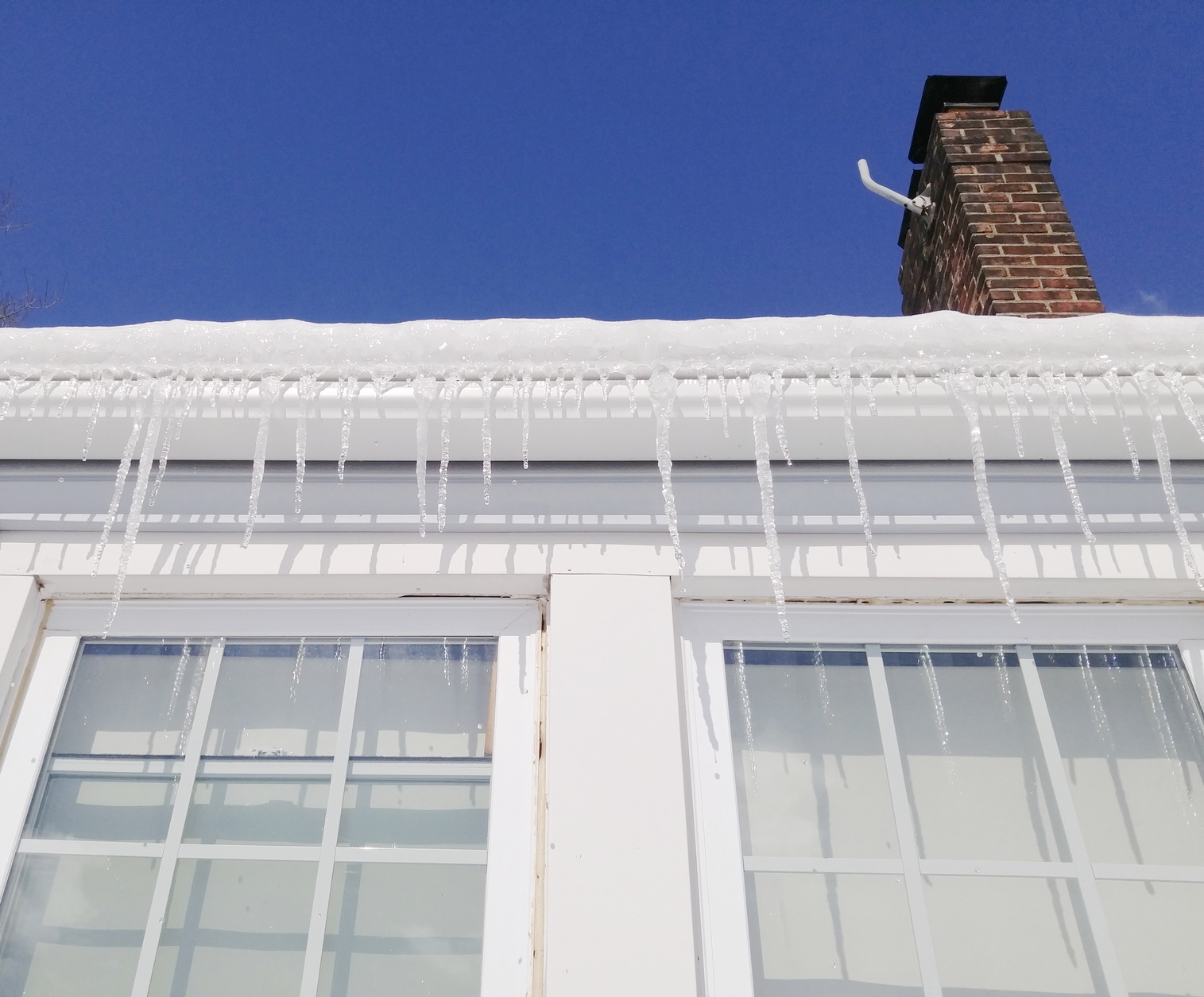Potential Issues Without Proper Drainage
Drainage issues can be costly and damaging to your home and property alike. For example, you may experience damage to your foundation from the constant pooling of water pushing up against the integrity of your home. Or you may experience damage to the interior of your home from flooding.
It takes extensive planning and execution to fix a drain problem on your property. Still, it should be a priority to search for excavation companies that can offer their services today. Excavation contractors have the customer service and expertise to redirect the water on your property so that it adequately drains during a rainstorm.
Signs that You Have a Drainage Issue
Pick up the phone and call excavation companies to start getting a quote for your drainage issues. These are tell-tell signs that it’s time to take action:
- Mosquitos gathering around stagnant water in your yard
- Water pooling in the middle or edges of your yard by a wall
- Signs of erosion
- Plants and grass dying from too much water
- Flooding in the basement
- Ice accumulating on patios and in puddles
Any of these signs are problematic when left alone. Therefore, excavation services are needed to look into your current drainage situation and see what went wrong. Your trusted excavation company will have the problem fixed in no time.
Possible Drainage Issues
As you start to investigate what could be causing your drainage issues in your yard, especially if it is a new problem, there are several things to consider. First, take note of whether the water pools during a storm and how long the water accumulation lasts. Confirm that it has nothing to do with the septic system. Then you will be prepared to find solutions quickly. Your drainage problems may be caused by one or several of the following factors.
- Run-off from Neighbors: Even if you have your draining issues taken care of, you may still receive an influx of pooling water during a hefty storm. Is it possible that your neighbor’s grading leads to water accumulation on your property? Absolutely. Excavation companies can mediate between you and your neighbors during their site work so that you can civilly find a solution between the two properties for drainage solutions. It’s likely that your neighbor is unaware that their run-off is pooling directly into your yard.
- No Wall Drains: Water pools on properties with cinder block or brick walls that may be blocking water from taking its natural course. Have you ever seen strategically placed holes in the bottom of neighborhood brick walls? They are there for a reason– drainage! First, inspect the holes in your wall to be sure that they are not obstructed. Then, contact excavation services to make the holes bigger or implement more holes into the property wall.
- Clogged Drains from Roots: If you have a working drainage system on your property, it could become less efficient due to blockage from roots or debris. It makes sense that underground drain pipes could get backed up with debris that the water carries into them during heavy storms. Check your existing drain pipes for blockage before embarking on a whole new drainage system.
- Lack of Gutters: Your home has gutters on it for a reason. The worst place you would want water to accumulate is on your roof! Roof replacements are expensive, which is why a proper gutter system is vital to maintaining the integrity of your roof. This simple construction project ensures that gutters are installed to redirect water away from your home and into the soil below.
- Improperly Installed Downspouts: Downspouts are installed on the side of buildings to direct the water to soak into the soil or guide its way out of your property. If you have a downspout that directs the water into a pool of mush that never dissipates, it’s time to find a new path for your downspout. Excavation services can help.
- Property Grading Mistakes: The point of grading your property is to gradually decline your grass or landscaping so that water moves away from your home during a storm. Perhaps the grading was not done correctly, or it has changed over time. Excavation companies have all the insight you need to find grading solutions.
- New Landscaping: Could it be possible that your new landscaping project could contribute to drainage problems in your yard? Sometimes, when you embark on a new landscaping project, you change the grading of your land. For example, if you were to plant an elevated garden, the grading may slope toward your house and, therefore, direct water toward your home during a storm. Excavation construction can grade your land the right way.
- Saturated Soil: If you have soil in your yard that seems to be constantly saturated with water, sometimes even making an impression or what looks like a sinkhole in the yard, you need help. The saturation could be an issue because of the type of soil. If the soil is too clay-like, it will absorb too much water. If the soil is too sandy, the water can slip right through it, causing erosion and clearing out the soil as it flows through your property. Use soil that is the perfect mix so that water moves through it without staying or bringing the soil with it.
You don’t have to live with drainage issues, hoping they will resolve themselves. Excavation companies have the expertise to identify and find a solution so that the draining on your property can keep your home safe from water damage.
Possible Solutions to Your Drainage Issues
When you contact excavation services, it may be helpful to be familiar with specific techniques that are used to solve your draining problems. That way, you can add your input and show your competence. Here are some possible treatments to fix your water accumulation on your property:
- Sump Pump: If you can’t get water to budge off your property, a sump pump may be needed to get it out immediately. Then you can start from a clean slate as you plan for drainage solutions with your excavation company.
- French Drains: French drains can be installed to direct the water run-off away from your home.
- Channel Drains: Channel drains are great around the outdoor patio so that the water doesn’t pool into your grass. You may not guess that water can pool around the patio, but it does when the patio itself does not absorb any moisture.
- Installing a Water Feature: You may install a pond or waterfall on the property to accommodate naturally pooling water. Add variety and ambiance to your yard while solving your drainage problem.
There are so many ways to find solutions to your property draining issues. Excavation services are available to help you through this problem. Learn how your property can reach its full potential with a new drainage system.
Prevent Setbacks with Professional Drain Excavators
Mikula Contracting has extensive experience in excavation services when it comes to drains and redirecting water on your property. We take pride in serving the homeowners of New Jersey. When you choose our company out of dozens of excavation companies, you can rely on a lifelong partnership with a trusted team.
Our Mikula Contracting team can find the ideal drainage system for your property. Avoid all of these complications by hiring competent excavation services. Contact us today for a consultation on your property.
Types of Commercial Drainage Systems
Commercial drainage systems are vital to redirecting rain and water around your commercial property where it will not cause damage or block walkways and entrances. As you research the different types of commercial drainage, you can find out what options are best for your property.
Keep in mind that performance is an important point to consider in the decision process while you are looking into different types of commercial drainage, but esthetics are also crucial to your commercial property. You want to choose a drainage system that keeps your property looking sleek and up-to-date.
Different Types of Commercial Drainage Systems
When comparing and contrasting different types of commercial drainage for your commercial buildings, look into each system and decide which is best for you. For example, some types of drainage systems require drain pipes, while others use gravity to redirect the water to the right place. While some drains will do the job, they may not look the best on your commercial property.
Take a look at the options.
French Drains
French drains are subsurface drains that use drain pipes below the ground. These drain systems are helpful for water management above ground and way below ground with groundwater.
The main purpose of French drains is to redirect standing water to a sewer or place that the water can flow freely without pooling in problematic areas. For example, French drains are regularly used in landscaping to move water from high spots down to a lower place where the water runoff can continually flow through the drainage system.
You will find French drains in gardens, appearing as perforated pipes just below ground level. When you have a flooded area on your land, you can use French drains to redirect the water to a lower spot on the land near a sewer or gutter.
Trench Drains
A contracting team builds trenches that will collect the water runoff during a storm. The trenches are often covered with a metal grate that you can see on the ground's surface. These types of drainage systems are commonly used on commercial property. Trench drains collect excess water and drain it into the earth or direct it to the groundwater below the soil.
There are many available styles for trench drains. You can choose the type that best fits the style of your commercial property. And then have a team install the grates after the trenches are made.
Storm Drainage Systems
Underground, there is a matrix of storm drainage systems that redirect stormwater to streams and lakes. This series of pipes and channels is thoughtfully planned to salvage as much drain water as possible for reuse.
Without these types of commercial drainage systems, rainwater would pool on roadways and property, breaking down sediment and going to waste. Water is a renewable resource, and storm drainage systems offer an efficient way to collect the water.
Catch Basins
Catch basins are part of a drainage pipe system that separates the sediments in the water. As the water collects, the heavier particles sink to the bottom of the basin to allow water flow that is free of the deposits.
This filtered system isn’t necessary for some types of commercial drainage systems that are updated. But it can be a valuable piece to a storm drainage system.
Seepage Pits
Seepage pits are vital pieces to the sewage system. These deep drains collect the blackwater from toilets, dishwashers, and washing machines. This toxic wastewater mixes with a biomat inside the seepage pit that contains anaerobic bacteria.
The bacteria feed on the wastewater and cleanse it before it seeps into the soil below. This is a slow process that is proven to be effective. It is imperative to do our part in disposing of feminine products and large materials through the trash rather than the toilet to ensure that seepage pits work effectively.
Commercial Roof Drainage Systems
Along with other types of commercial drainage systems, a commercial roof drainage system is vital to keeping your roof in good shape. The last thing you want is pooling water on the roof, weighing down the materials, and causing leaks into the building.
Take a look at a few of these roof drainage options to choose which types of commercial drainage systems are right for your commercial building:
- Gutters: Everyone is familiar with gutters and how they attach to the home to redirect the water runoff. Many gutter designs take special care to keep the water off the outside of the building to reduce mold and grime buildup.
- Downspouts: This pipe moves down the side of the building. While working hand-in-hand with gutters, the downspouts carry the water straight to the ground. Mildew, mold, and moss are less likely to grow when the downspout collects the water and keeps it from pooling on the commercial building.
- Internal Drains: Most commercial roofs have internal drains where water is most likely to be collected. These internal drains move the water to the downspout. Internal drains will be found where the downgrades of the roof meet so that the water does not build up and weigh down the roof. It is common for internal drains to combine with other types of commercial drain systems to move the water to the soil below.
Consider which system is suitable for your commercial roof, whether it be scaled roofs or flat roofs. Then, when you have these options before you, a trusted contractor can help you choose which types of commercial drainage systems are best.
Commercial Drainage Contractor in NJ
At Mikula Contracting, our team can answer questions regarding your commercial drainage needs. We know how important it is to protect your property from pooling water and leaks. Contact our team to find out how we can get started today.
When you choose Mikula Contracting, you select our family-owned business with 75 years of experience working with clients. With each contract, we work to improve our customer service and deliver top-quality projects. Do not delay in setting up your initial consultation.
Trench Drains vs. French Drains: What’s the Difference?
Drainage systems are more than just holes in the soil. Trench and French styles are two effective approaches to move water offsite, but the difference between them is often misunderstood.
The confusion between trench and French drains is understandable for anyone outside the industry. The terms rhyme, they both involve trenches, and French drains aren’t really French. The defining difference is very simple, however: Trench drains are surface structures while French drains are subsurface ones. Let’s look at how they both work to keep water flowing offsite.
How Trench Drains Operate
Trench drains are also referred to as channel drains and are classified as an above-ground drainage method even though the actual materials are embedded into the ground. This drainage method involves digging a long, narrow trench and finishing it with a grated covering, giving the impression of a large piece of guttering in the ground.
Just like a gutter, trench drains redirect water away from areas where it could cause harm by presenting slip/fall dangers, causing surface erosion of the soil, or presenting other dangers. Once dug and laid, the trench drain must be connected to a local storm sewer or environmentally responsible waterway to direct water away from the site without damaging the ecosystem.
The surface area surrounding the drain must be neat and clear of all obstructions to allow the free flow of water through the grate. Trench drains can be applied at a gentle slope to aid with runoff and sometimes work with a sump pump to drain low-lying areas more effectively.
This kind of drainage can be installed temporarily or permanently with grate strengths varying in load-bearing capability. This kind of drain is exposed on the surface, so it may have to handle some serious weights. The lightest grating examples — Load Class A by ANSI standards — handle foot traffic, on up the scale to Extra Heavy Duty and Special Duty strengths — Load Classes E and F — which can handle passing loads of up to 10,000 pounds.
Trench drain materials range from plastics like polypropylene to concrete, while the grating which covers them can be plastic or steel. If a trench drain will be a permanent fixture, home or business owners can tailor the grating color to better suit its surroundings.
Explaining French drains
French drains are actually an American innovation, invented in the 19th century by a New England farmer named Henry Flagg French. He was the author of “Farm Drainage,” a book published in 1859 and widely considered to be the root of the entire science of drainage.
French drains are subsurface solutions consisting of a trench filled with gravel and a slotted or perforated pipe. A layer of protective, permeable fabric is placed along the bottom and sides of the trench after it has been dug to prevent soil and root intrusion and on top before the topsoil is replaced. Just like a trench drain, French drains siphon water downhill from a site, only this time that includes groundwater as well as surface water.
The gravel in a French drain can vary in size and acts as a sieve by straining out pieces of debris from the water as it passes through. Since these drains are sunk more deeply into the soil, they help draw out any water from the surrounding earth that could cause erosion, structural instability, or both.
French drains have toughness in common with trench drains since the French type must handle groundwater that’s subject to hydrostatic pressure (the pressure water exerts due to the force of gravity). French drains are very effective at redirecting water away from structures and preventing damage to the foundation. Their dimensions are site-dependent, but French drains are typically around a foot wide and can range in depth from inches to a couple of feet.
Let Mikula Contracting Solve Your Drainage Problems
Trench and French drains have one other very important thing in common: onsite responsibility. The first step to digging any trench is to research the lay of the land on factors like soil quality, utility line placement, and what permits are required at the local and/or state level. Any dig that starts without due diligence places the construction team, their clients, and the surrounding area at unnecessary risk.
The Mikula Contracting team has more than 70 years of experience in taking care of drainage jobs without shirking our community responsibilities. Trench or French, commercial or residential, we’re fully qualified and insured to create the solution your site requires. Water problems come in different forms — including stormwater, lawn water, and street water — but Mikula can solve them all.
We design and build the trench system that suits you to provide everything from surface, ground, and land drainage to rainwater drainage, standing water drainage, and seepage pits. We’ll talk you through the entire process and provide an honest, transparent quote. Connect with us at the link below and ditch all your drainage worries.
Mikula Contracting, Inc. provides commercial and residential customers with a wide range of excavation, demolition, environmental, trucking, and soil materials services. For more information, call 973-772-1684 or email info@mikulainc.com
Digging Into Site Prep for Commercial Construction Projects
Whether the project is construction or excavation, everything starts with laying a good foundation. Sites require diligent preparation before a project can get off the ground.
Site preparation is where a building’s future starts — a delicate time where professional care and respect for procedures set the project’s standard. Quality site prep is a deep process touching many bases of expertise. Construction teams will connect with architects, soil specialists, and environmental agencies to create a circle of professionals all working together toward the same goal.
Start With the Lay (and Law) of the Land
Some projects take more time to prep than others, but they all follow the same basic rules. A good construction firm will be familiar with all regulations governing construction projects. Federal, state, and local rules can and do play a part before the build begins, making proper permits and permissions essential prep documents.
The EPA’s guidelines for obtaining a Construction General Permit indicate the high standards expected from site prep and execution. While it’s a construction company’s job to disturb the land, they only have temporary permission to do so. Provisions must be made to minimize disruption to infrastructure, wildlife, and ecosystems before, during, and after construction. From there, a team can get itself on-site and continue further preparations.
Provisions for Construction Staff, Visitors, and Pollution Control
Construction teams may never live or work in the buildings they erect, but they’re certainly on-site residents until the job’s done. Weeks or months in one location require facilities like portable toilets and job trailers (moveable facilities which may house temporary offices, dining areas or provide storage room).
Provisions must be made to keep the site supplied with electricity and water for several purposes, and they may come through an on-site water tower, portable generators, or connection to local utilities. Sites often require septic tanks, draining tanks, and a temporary sewer to handle waste. Responsibly preparing for every form of water and waste management, man-made or natural, is a management best practice.
There are strict EPA rules and guidelines to keep workers and the surrounding area healthy and safe. Facility-produced water or rain/storm fall can wash harmful chemicals and debris from a site into local drinking and water sources. Proper site prep involves knowing whether the state or the EPA is the permitting authority for construction activity.
Soil Testing and Land Investigation
Water management is closely linked to protecting and preserving soil quality during site prep. Construction teams must know the strength, composition, and type of soil they’re about to work on. If it’s too weak or water-absorbent, it won’t be able to support a structure. Soil testing involves taking samples for analysis, and the teamwork between soil graders and construction workers is a vital link in the site-prep chain.
That soil data is analyzed to decide what measures need to be taken to strengthen the site for structural support. Sometimes, new soil may need to be brought in to compensate for a weakness. Other times, recompacting the existing soil may be enough to toughen it up. Once the project has s green light, the greatest care must be taken to prevent soil erosion and control sediment as the work progresses.
Developing a Site Plan
A site has its raw state and then how it looks after the construction team arrives with their equipment. Both must be combined into a site plan that clearly shows natural topography, project boundaries, placement of utilities, and any other pertinent information. For example, the placement of utility lines must be carefully studied to prevent damage, injury, or death before work gets underway.
Sites are organic things; even the best prep won’t protect a project’s layout from changing over time. The site plan must constantly reflect these changes while providing a guide for construction teams and third parties by showing safe entry, exit, and material deposit areas. Site plans may also include details of the surrounding area since man-made and natural features may have to be considered for the duration of the build.
The Public Face of Site Prep
When all the behind-the-scenes work of permits, geophysical research, and utility placement has been done, the public face of site prep can begin. This is the part of construction everyone can see taking place. It involves clearing the land of any natural or man-made objects, excavating, trenching, and setting up clear safety boundaries to separate the site from the surrounding area.
This is what people typically imagine when someone says “construction site” and none of it would be possible without diligent preparation. At Mikula, we know what it takes to prep a site. We’ve got over 70 years in business serving our community along with EPA and OSHA certifications. We’re here to provide the best in construction site responsibility and affordability.
Contact Mikula Today and Let Us Help Prep Your Next Project
Mikula Contracting, Inc. provides commercial and residential customers with a wide range of excavation, demolition, environmental, trucking, and soil materials services. For more information, call 973-772-1684 or email info@mikulainc.com.
Properly Functioning Stormwater Drainage Systems Fight Against Flooding
New Jersey has always had to fight against floods, but increasingly harsh weather and an antiquated stormwater system mean the battle is a serious one. First-rate drainage is important for any business looking to keep its head above water.
It’s going to cost $15.6 billion to upgrade New Jersey’s aging stormwater systems, but it’s an expense that’s sorely needed. Our state was hit last year by more rain than we’ve seen in our history, and all that runoff must end up somewhere.
New legislation in the form of the Clean Stormwater and Flood Reduction Act was signed into law in March 2019 to improve the situation but caused some controversy. Whatever stance the public takes, it’s inarguable that highly efficient storm drainage will be required to handle the heavy loads of stormwater in our future; an element which creates a lot more problems than just soaking NJ residents.
The bigger problems with stormwater
The obvious issues caused are traffic hindrances, increased risk/occurrence of accidents, sinkholes, and possible severe structural damage to homes and businesses. These are terrible, but there are further dangers which aren’t so clear to the naked eye.
Stormwater is clean enough – until it hits the ground, that is. Stormwater is responsible for 60 percent of water pollution in New Jersey. Once it starts causing brooks, rivers and other water bodies to overflow, a wash of stormwater quickly becomes a carrier of pollutants into the wider community and negatively impacts humans, wildlife, and ecosystems.
When these rain tides cross over rural and urban areas (urban areas are usually harder hit because of a lack of natural drainage like soil), they pick up pesticides, bacteria, toxic chemicals, and other things like grease and oil.
Worse still, urban areas may find sewer systems engulfed beneath stormwater causing them to overflow and contaminate drinking water. Polluted water is already a problem for New Jersey with long-standing hazards including phosphorous, mercury, arsenic, and excessive bacteria.
All that pollution just gets picked up and spread around as stormwater goes on its way. Sadly, few New Jersey municipalities are expected to implement proper utilities despite this being the best course of action to meet modern standards for storm water management.
Where is it supposed to go?
Ideally, stormwater will flow into the storm drains you see dotted around parking lots and along sidewalks. Labeling requirements from the New Jersey Department of Environmental Protection’s municipal stormwater permitting program requires every storm drain be clearly marked in order to make people aware of non-point source pollution.
Once stormwater disappears down the drain, it should be rerouted and deposited into local waterways. New Jersey adopted stormwater management rules in the 1980s which utilized detention basins. These were designed to hold stormwater for gradual release through low-flow concrete channels and outlets into nearby bodies of water.
But, a worse-case scenario can take place. Combined sewer outflows common in older areas carry human waste and stormwater in the same pipes. Sewage should make its way to the nearest treatment plant, but that’s a struggle when stormwater is surging along the same passages.
When this combination is the case (which it is for 21 of New Jersey’s cities) the mixture of sewage, stormwater, and any pollutants along for the ride go right back into our rivers and out onto streets as drains overflow.
It’s an ugly situation that can escalate quickly and do lasting damage which can total in the millions of dollars. You can find more information on how New Jersey tackles stormwater on the DEP website and in their best practices manual. Our readers who own non-residential buildings such as commercial or industrial structures can find detailed information in this Stormwater Utilities Overview.
Let Mikula handle your commercial stormwater needs
We’re as passionate about the environment and community impact as we are about providing the highest service to our customers, so you can be assured that proper commercial stormwater solutions are a priority for us! Your commercial property is very likely at serious risk of falling foul of New Jersey’s outdated stormwater solutions and heavy weather that’s only set to get worse as the years go by.
We have a lot of experience in our 73-year history with solving commercial drainage problems. We offer our customers complete drainage design solutions that fit their property. Stormwater isn’t our only area of drainage expertise, either. We also provide ground and land drainage, surface drainage systems, rainwater drainage, seepage pit installation, and standing water drainage.
We’re a comprehensive drainage solution for commercial properties in Essex, Hudson, Bergen, Passaic, Morris, and Union Counties. You can be sure we’ll keep you informed and educated every step of the way, so you fully understand what’s happening and where your money is going.
Click here for a fast quote and let’s get to work protecting you and your property from the next wave of stormwater.
Mikula Contracting, Inc. provides commercial and residential customers with a wide range of excavation, demolition, environmental, trucking and soil materials services. For more information, call 973-772-1684 or email info@mikulainc.com
Improper Drainage Can Ruin Your Parking Lot - Here’s How Mikula Can Help
Floods are usually costly, but recent changes in New Jersey stormwater legislation could raise the price on future incidents. Here’s how to avoid turning your parking lot into a pond at any time of year.
New Jersey lots already have nature against them. They don’t need people adding to the problem. The image illustrating the 2018 state of emergency perfectly captures the battle New Jersey (and its parking lots) can face against floods.
Our communities are prone to chronic flooding; so much so that a controversial tax bill was recently passed to assist in the $15.6 billion it would cost to upgrade our state’s stormwater system.
Effective parking lot drainage is a must even if a flood isn’t underway. Lots can create water troubles all on their own if owners don’t take the proper steps.
How pooling becomes a problem
Isolated puddles here and there are also called “ponding”. They can seem harmless especially in larger parking lots. Owners may be content to wait out the rain and just let the puddles evaporate. But, even when evaporation does eventually occur, every moment that pooled water spends on the ground is naturally eating away at your lot by oxidizing and eroding the surface.
There can also be other things in those puddles besides H20. Standing water after rain can become pockets of toxic run-offs with gasoline, anti-freeze, and oil and brake fluid which may drip from cars into puddles and stay there. This only speeds up the erosion process of the lot’s surface.
Storm waters which roll into a lot behave in the same way by gathering up chemical byproducts and natural waste as they go; more unwanted stuff deposited on your property when those waters settle there.
Now, let’s add in New Jersey’s often-cold weather. Lot puddles go through the freeze/thaw cycle (sometimes many times over for the same puddles) which weakens the surface underneath. Thermal expansion can cause cracks to appear which only get bigger over time creating more risks and making a parking lot much less attractive.
Raveling and potholes are only two of the potential distress signs which might occur and seriously damage asphalt.
Water can wipe you out in a lawsuit
Pooled parking lots are also far more likely to cause an accident. Single drivers will have less control of their vehicles and could skid, but there’s much more risk that multiple vehicles will end up colliding. People walking across your lot are in greater danger too if water causes them to slip or fall, especially when that water has become ice.
These incidents can easily turn into lawsuits since the water has become a danger that your property will be liable for. Litigation of this kind could easily end up costing property owners thousands of dollars.
What you can do to weather any storm
Having proper drainage in your parking lot can save a world of trouble. In an ideal world, a drainage specialist would be present as the parking lot is first being constructed to ensure the right system is put in place early. There’s still no reason to worry if your lot has been there for a long time.
Every parking lot’s needs will be unique. Sometimes, some rearranging of the surface may be necessary in order to direct water toward areas where it could naturally and safely be absorbed, such as grassy spots.
Other times, a resurfacing may be required to replace the old asphalt with a more porous alternative. These “permeable paving” options are EPA-approved and help parking lots to mimic the natural filtration and drainage of soil. These options can also lower long-term maintenance costs.
Quality drainage must be installed beneath your parking lot’s subgrade, so it’s essential to hire a careful and qualified construction firm for the job.
At Mikula, we have over 70 years of experience under our belt and multiple ways to help your commercial property handle drainage. We provide complete drainage design regardless if your issue comes from stormwater, street water, or trench systems. We protect our customers by providing:
- Ground and Land Drainage
- Surface Drainage Systems
- Rain Water Drainage
- Seepage Pit Installation
- Standing Water Drainage
When you have the right drainage in place, we also recommend paying close attention to your lot and regularly cleaning away any toxic spills or debris which can threaten your property.
Why let your parking lot become a pool of risk and eyesores that will lower your property value? New Jersey was battered by more rain last year than the state has ever seen. There’s no better time than now to think about your parking lot’s drainage and protect yourself from Mother Nature.
Get in touch with Mikula today to be water-ready and minimize being washed-out by the “rain tax”.
Mikula Contracting, Inc. provides commercial and residential customers with a wide range of excavation, demolition, environmental, trucking, and soil materials services. For more information, call 973-772-1684 or email or email info@mikulainc.com
Nobody Cares for Customers Better Than a Local Contractor
The benefits of hiring a professional speak for themselves, but does it really matter if your choice is local? It certainly does. Here are the many reasons why a contractor from your own neighborhood is a cut above the rest.
Right off the bat, a local business is quite literally invested in their community. They’re not some big national corporation or shady company from out of state who lack all the right licenses. When you hire a local contractor, you’re choosing a team that has roots in the same ground you do. It’s an empowering relationship for all concerned. Customers get the best possible service while the contractor further cements (pun intended) their standing in the community.
It goes beyond this, too. A local professional understands every aspect of their job and that includes the legal and financial alongside the manual.
A local contractor knows the letter of the law
Legal requirements for contractors vary from state to state. The companies who really care will know what’s needed for their locality and make sure they’ve got it. This tells a customer two important things at once. First, this contractor takes the law seriously. Second, they care deeply about their customers and their own reputation; an unqualified contractor sets their customers up for trouble just as much as themselves.
Here in New Jersey, contractors need to carry insurance before they’re even allowed their license to start working. This is an excellent and disciplined approach which quickly presents the best available option to the client searching. It holds local contractors to a higher standard and protects everyone involved. The same goes for being bonded. A bonded contractor will be compliant with all local (as well as state) license laws. Since New Jersey contractors are all licensed at either the city or county level, bonds really show awareness and dedication to their home turf.
A local professional has the right insurance and permits
Plenty of contractors will tell you they’re insured, and an uninsured one is easy to spot these days. Check out their website to see if they have their insurance details prominently displayed. If they don’t, they’re breaking the law and putting you at risk while doing it.
All manual labor puts workers at risk. The right contractor will have worker’s compensation in place to protect their employees alongside other coverage like general liability and umbrella. As the name suggests, umbrella coverage protects them from a lot more than general does. Safety is of the utmost importance to us, which is why every Mikula Contracting operator is qualified under the strict standards of the Occupational Safety and Health Administration.
OSHA (as they’re more commonly known) treats worker safety as an absolute priority and they set the bar nationally for contractors when it comes to looking after their team. It’s more than common sense and laws; a safety-conscious contractor makes sure their customers don’t foot the bill for workers injured on the job.
We took an in-depth look at permits in our previous blog which are another benefit of hiring a knowledgeable local contractor. We’re also dedicated to keeping our local community as pristine as possible which is why we’re certified with the New Jersey Department of the Environmental Protection Agency.
A local contractor shares your weather woes
If you’re in the contracting business in New Jersey, you had better know about snow! Last year’s winter had many of us thinking we’d broken a record (but we had a long way to go). Any contractor can stay up to speed with our state weather via the web, but it’s only a local contractor who has the same experience customers do with ensuring your neck of the woods maintains business as usual.
Snow can be a sudden hazard. It can box you in overnight and leave driveways, highways, and commercial sites crippled for days, weeks, or even months. New Jersey’s northern communities are often the hardest hit and that’s why we provide both emergency and ongoing snow plowing and removal services with our state-of-the-art equipment.
What it all adds up to
Everything you’ve just read shows you why a local contractor beats the rest. Mikula Contracting is fully licensed throughout the state of New Jersey and we’re adding to our 73 year-long list of satisfied customers every day. We can be there to get the job done no matter where you are in NJ.
Mikula Contracting, Inc. provides commercial and residential customers with a wide range of excavation, demolition, environmental, snow removal, trucking and soil materials services. For more information, call 973-772-1684 or email info@mikulainc.com
Why You Need a Trusted Commercial Drainage Contractor
When setting up your business site, drainage may be one of the last issues to cross your mind. After all, people often overlook many of the unseen systems that allow their home or business to function without a hitch. But when big drainage issues arise, this invisible and seemingly unreachable system suddenly becomes a lot more important.
When the drainage system of your home backs up or breaks, it’s a huge nuisance. But when these issues occur within your commercial property, it could be a complete disaster.
That’s why you don’t want just anyone fiddling around with your drainage. You need an experienced, professional contractor who is trusted in their field working on one of your most precious and delicate commercial systems.
Drainage Issues
When it comes to commercial drainage systems, there are two important factors that aid in continued performance. They are cleanliness and efficiency. If your pipes become dirty they will, over time, become clogged.
Once fluid is unable to flow freely through the drainage system, the water that was rushing away from your property could make a reappearance. What does that mean for you?
- Flooded property
- Destruction of landscaping
- Foul odors
- Overflowing toilets or sinks
- Burst pipes as a result of pressure building behind a clog
Any of these horrible events could lead to a slowdown of your business. More than one of them could cause a chain reaction that would lead to the temporary closure of the site and suspension of operations. Can you afford to spend a day or two closed due to drainage issues? Most businesses can’t.
This hammers home the importance of skilled installation and continued preventative maintenance performed by an experienced drainage contractor. Anything less could leave you woefully unprepared for a disaster that would place your entire business at risk.
Preventative Maintenance
When it comes to your commercial drainage system, you should never wait until water is flooding your facility to take care of a problem. But how does one police issues with a system they cannot see?
Preventative maintenance.
Preventative maintenance includes regularly monitoring potential issues within your system and correcting them before they become total disasters. This is not something just anyone can do, and it’s another area where a certified and skilled drainage contractor is worth their weight in gold.
So, what goes into preventative maintenance? Regular cleaning is essential to keeping your pipes clog free. By maintaining a clean and clear system, your site will remain safe from the dangers associated with flooding, smell, drain backup, and the ultimate worst cast scenario, a burst pipe.
You should also have your drainage contractor regularly inspect the quality of your system. If they can identify small leaks, you have a chance to patch them up before they become massive business-impacting catastrophes.
Oftentimes, these diagnostic visits include snaking a camera through the drainage system to accurately gauge what is going on underground. This effectively eliminates guesswork and ensures that the correct diagnosis is given right away, and repairs can be made.
The Various Methods of Drain Cleaning
There is no magical cure-all fix for a malfunctioning drainage system. That’s why when you choose a drainage contractor, it’s important to make sure that they are well versed in various drain clearing methods.
Some of the most effective methods for unclogging your system are:
Chemical Drain Cleaning
Using liquid alkaline or acid, organic blockages are dislodged and dissolved. This is similar to pouring Drain-O down the sink, and while it is effective, it also comes with some dangers. A lot of the product typically used for this method are corrosive and can degrade your pipes further. So, you might fix the blockage issue, but in turn take the first step down the road to pipe leaks.
Chemicals are also incredibly dangerous, so it’s better to let a certified contractor handle them.
Air Burst Cleaning
Another popular method to unclog a drainage issue is to use carbon dioxide or other accelerated gasses to either dislodge or disintegrate the blockage. This is a faster method than chemical cleaning which poses no danger to the pipes themselves.
Hydro Jetting
Hydro jetting is similar to air burst cleaning, but it uses water instead of air. A nozzle is inserted into the pipe and high-pressure water is blasted inside at up to 35,000 PSI. The water breaks down the blockage and pushes it away. This is highly effective against mineral deposits and grease.
Snake Cleaning
A long thick snake-like tool is run through the piping with a corkscrew on one end and a hand crank on the other. The contractor uses the snake to drill away the blockage until it has disintegrated. This is most effective for large scale blockages and is particularly useful in clearing away plant intrusions.
Hire an Experienced Drainage Contractor Today
Don’t leave the future of your business in the hands of an amateur. You’ve worked hard to get where you are, and you don’t deserve to let something like a drainage leak force your life’s work out of existence.
Mikula Contracting has over 70 years of experience in the excavation and drainage industry. Not only do we troubleshoot and fix issues, but we educate our customers throughout the process, ensuring their 100% satisfaction.
For more information on how Mikula Contracting can help New Jersey’s Essex, Hudson, Bergen, Passaic, Morris and Union county commercial properties, call us at 973-772-1684, or visit us online.
Commercial Property Drainage
Why it’s important
Talent, planning and insurance are all very important to your commercial business. However, while you are focusing on the big things, it’s vital that you not ignore the little things in the process. One such matter might be the importance of commercial property drainage.
Your commercial property is likely your company’s largest asset. It’s vital to protect it from harsh weather, accidental damage and commercial property drainage issues. Whether you are a CEO, property manager or maintenance manager, it’s likely that this responsibility falls on your shoulders. Learn how and why it’s important
The most common commercial property drainage problems
Water can be a powerful force. It has created some of the most amazing wonders on our planet, such as the Grand Canyon, Niagara Falls and the Stone Forest of China. This same power for beauty can also wreak havoc on your commercial property if its drainage is not handled properly. The most common problems include:
Clogged gutters, storm drains and downspouts
When the water cannot drain from your commercial roof, it sits there with nowhere to go. This can generate a multitude of problems, such as mold growth, mosquito and insect breeding grounds and deterioration of roofing materials. Often, the culprit is leave, dirt and debris that block the water flow. Tree roots can also be a factor. These must be regularly cleared and maintained.
Landscaping that impedes water flow
You may think that constructing a beautiful flower bed or outdoor leisure space will make your commercial property more attractive and enjoyable. This may be true, unless it interferes with the flow of water away from your building. Ultimately, anything that keeps water from flowing naturally will cause it to puddle somewhere. The cause is typically improper planning.
Grading dilemmas
It could be that it was improperly graded in the first place. You may have purchased a property and inherited a grading problem. Either way, incorrect grading can cause water to become trapped in a certain area or direct it toward your building.
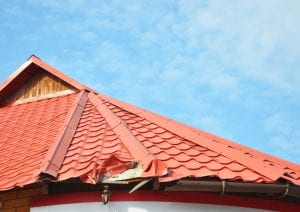
Damage or disrepair of roofing materials
Factors like ineffective flashings, broken pipes and missing tiles or shingles can be the source of many drainage problems. If they are not performing effectively, it can cause water to drain into your building instead of off and away from it.
Runoff from surrounding properties
Sometimes, your commercial drainage problem may not be your fault at all, but caused by your neighbors. This can be especially problematic if your property is located downhill from other properties. Still, while not your fault, it is your problem and must be handled to prevent damage to your building and commercial property.
How do you know when your commercial property has drainage issues?
To the untrained eye, drainage problems can seem minor and insignificant. However, over time, they can lead to big headaches, such as wood rot, mold, and foundation weakening. Therefore, it’s important to know the signs and stop potential difficulties before they become worse.
Ponding water is a key indication of a problem. This can be found on your commercial roof, on sidewalks and in the parking area. During cold weather, this can freeze and cause falls, slips and risk of lawsuits. All that excess water could also damage your landscape and even kill grass and plants.
Soggy grass can also spell trouble. This may be seen in any grassy areas around your commercial property. While this might be trivial if it occurs only occasionally during a hard rain, it’s a huge issue when it happens all the time.
Erosion problems are a sure sign of drainage danger. You might notice it mainly on hills or inclines. It could also be visible from exposed roots on trees and plants. This condition poses a hazard for a landslide or risk to the structural integrity of your building.
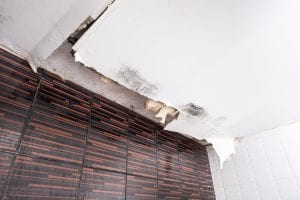 Water in unexpected places in your building is a clear signal of a drainage problem. For example, you may have water in your basement, leaks in your ceiling or ice buildup on the walkways.
Water in unexpected places in your building is a clear signal of a drainage problem. For example, you may have water in your basement, leaks in your ceiling or ice buildup on the walkways.
Look for cracks in the foundation that continue to widen as well. This may mean that water is seeping through, which can not only cause basement flooding, but can also weaken your foundation over time.
What to do about commercial property drainage trouble
Redirect the water flow – in some cases, commercial drainage problems are caused by topography and excess precipitation. You can add downspouts, landscape features or French drains to help route the water away from your foundation. Even something as simple as rocks or gravel may solve the problem.
Carefully monitor drainage – when it rains or snows, you should check that the water is draining properly. You may want to schedule an inspection with a top quality contractor to catch potential trouble spots. Just because you have not experienced a costly issue yet doesn’t mean you won’t. Some drainage problems occur slowly over time so it’s important to keep an eye on small issues so they don’t become expensive hassles.
Call the experts – a trained, experienced contractor can assess your commercial drainage issues and develop a unique and permanent solution for your property, but not just any solution. Our skilled and dedicated staff will use the right tools, materials and knowledge to get your commercial property in top shape. We will also help you create a customized storm management and drainage plan to prevent problems in the future. Don’t count on unqualified, unproven contractors with something this important. They will only leave you with a worse problem than you started with.
For demolition, disposal, and drainage concerns, you can trust Mikula Contracting. We can perform an onsite audit to examine your commercial property to fix your issues, conserve water and reduce your maintenance time, all to save you money and make your property more attractive. We have the talent, capability and capacity to handle even your toughest drainage matters. Drainage solutions, erosion control and water management are just some of the services we offer. We service Essex, Passaic, Hudson, Bergen, Union and Morris counties. Call today for a fast quote.
Preparing Drainage for Winter: What's Important to Know
Preparing Drainage for Winter
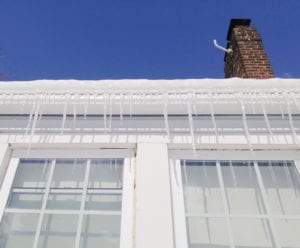
Benjamin Franklin said “By failing to prepare you are preparing to fail.” This quote stands the test of time because it’s appropriate for almost everything in life. Whether its major events like building a home or smaller matters like preparing drainage for winter, being prepared is fundamental.
We know to prepare for tests, job interviews and vacations. However, many lesser but important tasks, like preparing drainage for winter, tend to fall through the cracks. Learn more about the significance of this vital undertaking to avoid being caught off guard this winter.
Why preparing drainage for winter is essential
For most of us, cold weather means the beauty of a fresh snowfall, the opportunity to curl up in cozy blankets and an end to allergy suffering. Nevertheless, winter can wreak havoc on the outside of our homes and business properties. Things like sprinkler systems, outside faucets, gutters and drain pipes are especially susceptible due to the dangerous mixture of water and freezing temperatures.
We use water in our homes and businesses every day. Your water and plumbing systems consist of the most advanced, complicated and expensive aspects of your property. Therefore, it’s imperative to protect it.
When water freezes, it expands. This has an effect on whatever the water is in, including pipes and drains. You must take special care to protect any pipes or drains that may be exposed to the elements, even those in your garage or attic. This doesn’t have to be difficult, especially if you have the right commercial and residential drainage company to help you.
Anytime temperatures dip below 30 degrees, you are at risk for distress. Even if the frozen pipe or drain is located outside, the water damage will typically occur inside your home or business. When this happens, you may face the consequences of hundreds of gallons of water flow where it’s not supposed to go and the resulting financial costs.
It only takes one freeze event to cause a problem. Prolonged freezing temperatures and the accompanying wind chill that is standard for the weather in northern New Jersey often cause the soil to freeze around your pipes and drainage systems. You might not even be aware of the impairment until the following spring.
A lack of preparation before the winter temperatures hit can lead to disaster. Pipes can crack, burst or leak, causing damage to your property and expensive headaches. Taking steps now to guard against such trouble can save you time and stress.
How preparing drainage for winter works
Drain water from outside pipes – for many water-based appliances, draining is necessary. This includes hoses, faucets and taps. For hoses, you may want to store them in a warmer area to prevent damage and cracking. Some people think antifreeze is the answer but this is not always a wise choice. The chemicals could damage pipe lines and it’s not environmentally safe.
The procedure for draining your pipes is not always easy. Numerous steps add up to a complicated process. This may include attaching hoses and draining water outdoors or into a sump-pit, opening faucets and blowing out the water and flushing out the lines. If you don’t have the time or you’re not sure you can do it correctly, it’s better to call in a professional drainage company.
Insulate – there may be some pipes that you cannot drain for the winter because they are still in use. In this case, insulation provides the best protection. As an added benefit, it may also reduce your energy costs. Most home improvement or hardware stores sell circular insulation products. You simply wrap this around any kind of piping. You can also use heat tape or cable. Now is the time to check around the outside of your home for exposed piping and insulate it before freezing temperatures hit.
Repair any leaks – perform a visual examination while the pipes are still running and before the temperature drops below freezing. This is an ideal way to discover leaks on your property. If there are leaks, you may be able to patch them yourself using one of the DIY patch kits on the market. However, if the pipe leak is from your heating system or main water supply, it’s best to consult a professional.
Keep the heat on – some people are afraid of higher heating bills if they keep heat flowing around pipes during winter months but actually, the opposite is true. You will spend less if you keep your heat at a steady temperature. Rather than with the stop-start method of letting everything get cold and then cranking up the heat over and over to get it warm again.
Look for gaps and air flow – sometimes, there is space between a pipe or drain and the wall where it enters your home or business. This can cause cold air to get in and freeze the pipes. You can avoid this by using wood or plastic insulation. Do not use this method for vents connected to your heating system, though.
Make sure drain grates are clear – this is perhaps the easiest thing you can do to improve air flow during the winter. Remove leaves, dirt and debris from all outside grates to avoid freezing and keep the drains from becoming blocked.
Get protection – an ideal way to keep out dirt and debris is to purchase a drain protector. They make these protectors out of a freeze-resistant plastic material designed to withstand the elements.
Hire a residential or commercial drain contractor – make sure the company you choose is properly licensed and holds the right type of insurance. They should also be customer friendly and willing to explain all aspects of the drainage solution process.
Troubleshooting drainage issues takes experience. Mikula Contracting handles ground, land and backyard drainage as well as rainwater and standing water drainage and surface drainage systems. We service Essex, Passaic, Hudson, Bergen, Union and Morris counties. Call today for a fast quote so you can be ready for winter tomorrow.
